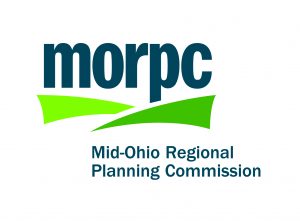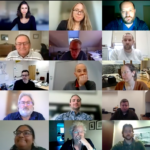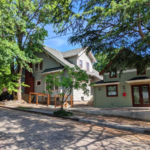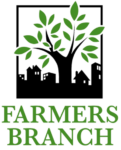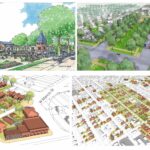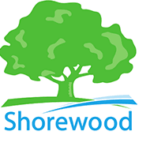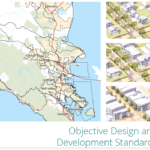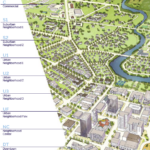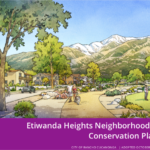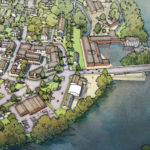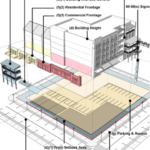FBC 301: Formulating, Adopting and Administering a Code, Columbus, OH
Summary
FBC 301: Formulating, Adopting and Administering a Code
September 18-19, 2017
Mid-Ohio Regional Planning Commission
111 Liberty Street, Suite 100
Columbus, OH 43215
Receive 16 APA CM Credits
FBC 301 focuses on formulating, adopting, and administering a form-based code. The course will offer an in-depth look at the relationship between the comprehensive plan and a form-based code, the mechanics of code adoption, the advantages and disadvantages of mandatory, parallel and floating-zone codes, and ways to avoid common pitfalls in the drafting and administration of form-based codes.
Instructors will explain how to structure the process, including what must happen before, during, and after the code is drafted, what to keep and what to discard from an existing conventional code, how to relate the form-based code to the existing regulatory framework in a specific municipality, how to insulate a FBC against potential legal challenges, and issues of post-adoption implementation and project review. The course will examine specific examples and lessons learned from experience working with form-based codes and will include a hands-on exercise in code implementation.
Click the tabs above to see agenda and instructors.
NOTE: The one-day class ABCs of Form-Based Codes — or FBC 101 on-line — is prerequisite for this class. FBC 201 and FBC 301 can be taken in any order.
FBC 301 is part of FBCI’s three-course series. It combines with FBC 101 (ABCs of Form-Based Codes) and FBC 201 (Urban Design) to complete a thorough instruction in the discipline of form-based coding. FBCI awards a certificate to all those completing the three-course series.
Lodging
The Westin Columbus
310 S High St
Columbus, OH 43215
(614) 228-3800
The Hilton Columbus Downtown
401 N High St
Columbus, OH 43215
(614) 384-8600
The Hyatt Regency Columbus
350 N High St
Columbus, OH 43215
(614) 463-1234
Hampton Inn & Suites Columbus
501 N High St
Columbus, OH 43215
(614) 559-2000
Agenda
DAY ONE — Monday, Sept. 18, 2017
|
8:30 – 9:00 AM |
Light Breakfast and Registration |
|
9:00 – 9:15 AM |
Welcome and Introductions |
|
9:15 – 9:45 AM |
Structuring the Coding Process —
Topics — The overall coding process; what must occur before and after actual code drafting; the critical role of the urban design plan underlying the code; how the FBC fits into the overall regulatory framework of the municipality; combining zoning, street design, and subdivision regulations into a legally defensible framework. |
|
9:45 – 10:40 AM |
Comprehensive Planning and Form-Based Codes —
Topics — The adoption of comprehensive plans articulates a community’s vision and aspirations for future form and character or neighborhoods and corridors. It also provides the legal underpinning needed to support the use of form-based coding approaches. This session will explore how comprehensive plans “set the stage” for form-based codes and how planning that is based on the achievement of desired urban form provides the necessary legal framework within which a form-based code can be adopted. |
|
10:40 – 10:55 AM |
Break |
|
10:55 – 11:45 AM |
Code Mechanics Part 1: Mandatory Form-Based Codes —
Topics — The three major methods of integrating form-based codes into existing development regulations; integrated codes vs. free-standing codes (which are published in separate chapters of the code or are part of California specific plans); advantages and disadvantages of mandatory codes; legal issues with mandatory codes; mandatory code format variations; examples of mandatory codes in place today. |
|
11:45AM – 12:30 PM |
Lunch |
|
12:30 – 1:20 PM |
Code Mechanics Part 2: Parallel (Optional) and Floating Zone Codes —
Topics — Advantages and disadvantages of parallel/optional codes and floating-zone codes; format variations and code examples of parallel (optional) and floating-zone codes, including legal issues of authority, defensibility and nonconformity. |
|
1:20 – 2:10 PM |
Adopting Effective Form-Based Codes —
Topics — Legal processes for adopting the code; preparing the community to apply it; managing expectations; ensuring that it is legally defensible and delivers what it promises; managing expectations. Which conventional code components should be carried over during a code overhaul; what FBCs typically discard and what can or should be retained. |
|
2:10 – 2:25 PM |
Break |
|
2:25 – 4:35 PM |
Exercise: Conceptualizing the Code —
Topics — A real-world exercise applying the legal techniques and form-based coding principles discussed earlier in the day to a specific site, including interactive discussion of alternative coding approaches and a discussion of the code solution that was actually adopted. |
|
4:35 – 5:00 PM |
Questions and Answers — All Instructors |
|
5:00 PM |
Adjourn |
DAY TWO — Tuesday, Sept. 19, 2017
|
8:30 – 9:00 AM |
Light Breakfast |
|
9:00 – 9:50 AM |
Tips on Code Drafting —
Topics — Form-based codes contain certain key elements not found in conventional zoning, but these codes must still follow all legal requirements for zoning and must be clear to the public and to code users and administrators. This session will describe best practices in code-writing generally, including the proper use of definitions, the need for due process for participants, consistency with other chapters and sections of the municipal code, and internal consistency within the FBC. Also discussed will be how to avoid common drafting mistakes. |
|
9:50 – 10:40 AM |
Implementing Form-Based Codes —
Topics — Form-based codes can increase predictability and reduce approval times if properly incorporated into the development review legal process. This session will explore pre- and post-adoption issues, building organizational capacity, legal authority for implementation and enforcement, and additional elements of development review. |
|
10:40 – 10:55 AM |
Break |
|
11:00 AM – 12:20 PM |
Development Review Exercise —
Topics — This exercise will use a real example of a proposed development to be reviewed under the provisions of a real form-based code. It will deal with the legal and practical issues encountered when a specific proposal is evaluated and approved or denied under a form-based code. It also will highlight the differences between project review under a form-based code and a conventional zoning code. |
|
12:20 – 1:10 PM |
Lunch |
|
1:10 – 2:30 PM |
Form-Based Code Case Study —
Topics — An analysis of the adoption and implementation of a specific form-based code, how the legal approach was selected, why it replaced the existing zoning, how the comprehensive plan underpinned the code legally, and a comparison with form-based codes adopted in other communities. |
|
2:30 – 2:45 PM |
Break |
|
2:45 – 3:35 PM |
Citywide Codes —
Topics — Many communities are considering or undertaking citywide updates to outdated zoning codes. This session will explore common issues and legal implications for using form-based approaches at the citywide scale in large and midsize cities. It will examine the differences between applying a form-based code to a neighborhood or corridor and a citywide application. |
|
3:30 – 4:20 PM |
Beyond Physical Form: Market Economics and Other Realities —
Topics — The need to identify the local issues to be considered when calibrating code standards, establishing administrative procedures, complying with legal requirements and navigating the political issues involved in getting a code through the adoption process. Establishing absolute minimums and fundamental standards in the short term; understanding current market demands and the local economic reality; and preparing for evolving market conditions within a viable legal framework—without sacrificing the community vision. |
|
4:20 – 5:00 PM |
Questions and Answers — All Instructors |
|
5:00 PM |
Adjourn |
Instructors
 Mary Madden has nearly 20 years of experience in the fields of urban planning and design, community development, and historic preservation at the federal, state, and local levels. Her recent projects have been completed in a variety of diverse locales, including: Peoria, Illinois; Memphis, Tennessee; Farmers Branch, Texas; Prince George’s County, Maryland; Marquette, Michigan; Arlington, Virginia; and Fayetteville, Arkansas. Ms. Madden frequently speaks and writes on the topics of urban design and form-based codes. She co-authored “Place Making with Form-Based Codes” for the September 2006 issue of Urban Land magazine, was a contributor to the National Charrette Institute’s 2008 Best Practices Report, and was a contributor to the APA/CNU publication Codifying New Urbanism: How to Reform Municipal Land Development Regulations. Before joining Ferrell Madden LLC in 2001, Ms. Madden served in several positions at the U.S. Department of Housing and Urban Development. Earlier in her career, she was the co-director of the Mayors’ Institute on City Design.
Mary Madden has nearly 20 years of experience in the fields of urban planning and design, community development, and historic preservation at the federal, state, and local levels. Her recent projects have been completed in a variety of diverse locales, including: Peoria, Illinois; Memphis, Tennessee; Farmers Branch, Texas; Prince George’s County, Maryland; Marquette, Michigan; Arlington, Virginia; and Fayetteville, Arkansas. Ms. Madden frequently speaks and writes on the topics of urban design and form-based codes. She co-authored “Place Making with Form-Based Codes” for the September 2006 issue of Urban Land magazine, was a contributor to the National Charrette Institute’s 2008 Best Practices Report, and was a contributor to the APA/CNU publication Codifying New Urbanism: How to Reform Municipal Land Development Regulations. Before joining Ferrell Madden LLC in 2001, Ms. Madden served in several positions at the U.S. Department of Housing and Urban Development. Earlier in her career, she was the co-director of the Mayors’ Institute on City Design.
 George Proakis, AICP is the Director of Planning for the City of Somerville, Massachusetts, a city of 77,000 with the highest residential density of any community in New England. He is currently working on the development of a new comprehensive plan and zoning overhaul for the communuity. Earlier, as planning director for the city of Lowell, Massachusetts, George pursued the redevelopment of a 15-acre transit-oriented “Hamilton Canal District”, and coordinated the development of a form-based code for this district. He led the creation of the New England Form Based Codes Council in 2009, and has advocated for better land use planning, innovative regulatory solutions and form-based codes in many New England communities. George holds a Master of City Planning from MIT and a BS in Civil Engineering from Northeastern University.
George Proakis, AICP is the Director of Planning for the City of Somerville, Massachusetts, a city of 77,000 with the highest residential density of any community in New England. He is currently working on the development of a new comprehensive plan and zoning overhaul for the communuity. Earlier, as planning director for the city of Lowell, Massachusetts, George pursued the redevelopment of a 15-acre transit-oriented “Hamilton Canal District”, and coordinated the development of a form-based code for this district. He led the creation of the New England Form Based Codes Council in 2009, and has advocated for better land use planning, innovative regulatory solutions and form-based codes in many New England communities. George holds a Master of City Planning from MIT and a BS in Civil Engineering from Northeastern University.
FBCI draws upon national experts, including urban designers and planners with broad experience in all aspects of form-based coding. We have assembled an excellent group for the class in Lansing.
Registration Fees
Private
Early Bird $575
After Sept. 1 $650
Public
Early Bird $425
After Sept. 1 $550
Discounts will also available for large-group registrations.
Contact FBCI for more information.
Thanks to our great sponsors!


